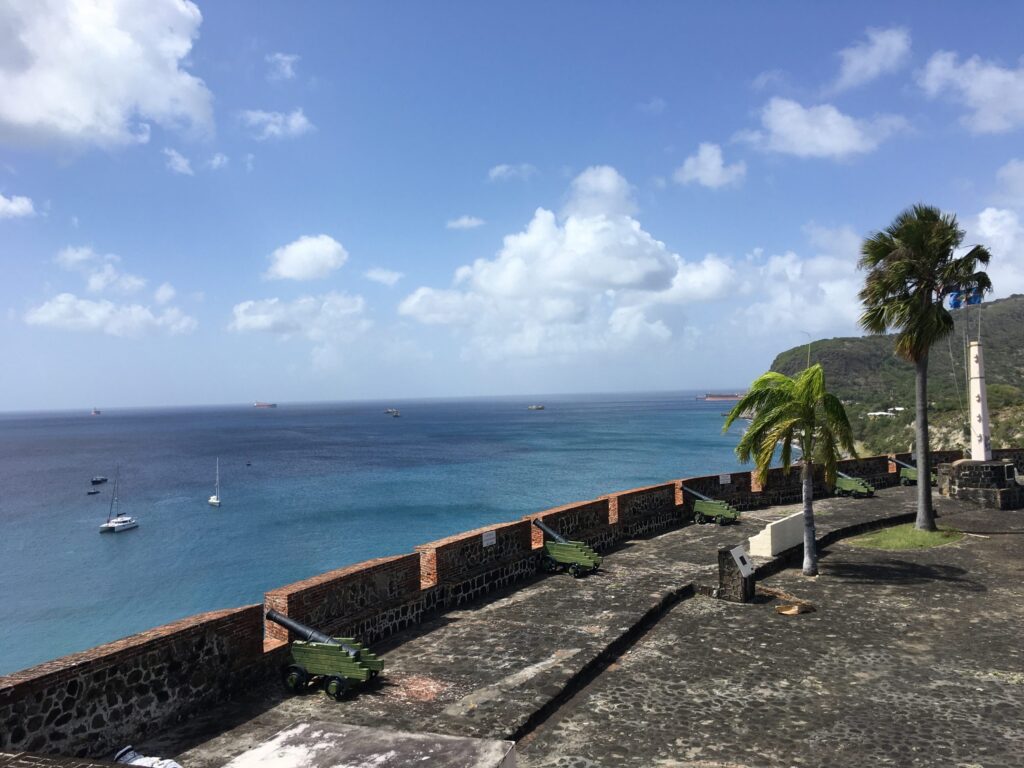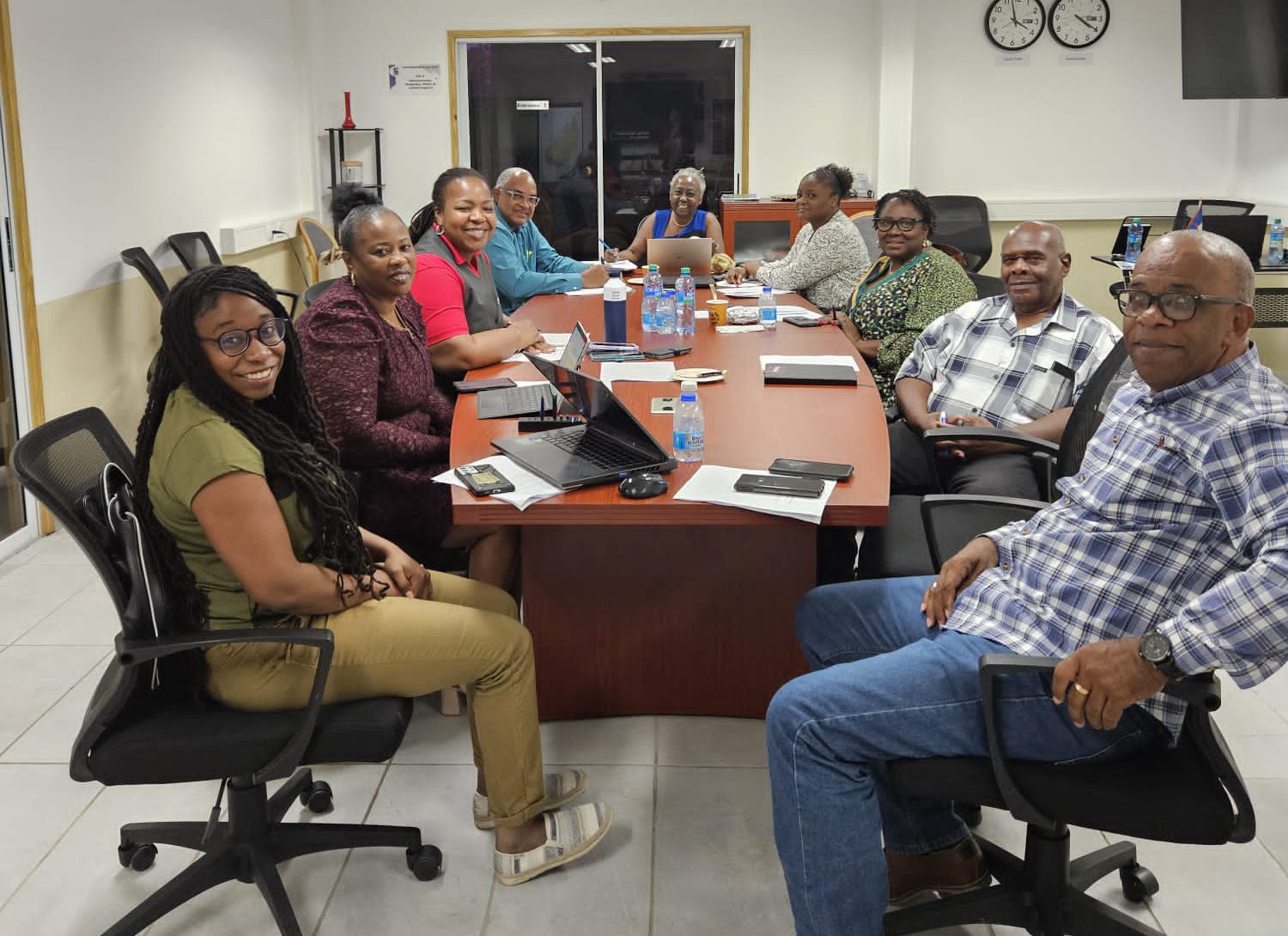Overcoming political differences for a common goal in Sint Eustatius

It was never really for them a plan, or their intention, to enter politics. But it was a culmination of events that led Rechelline Leerdam, and later Raquel Spanner-Carty to be at the epicenter of political life when communication broke down completely between the political leaders of Sint Eustatius. An island nestled between the islands of Sint Maarten and Saba, forming the SSS-islands of the Dutch Caribbean. The two women politicians Rechelline, leader of the Progressive Labor Party (PLP) and Raquel, leader of the opposition party – the Democratic Party (DP), would come to play indispensable roles in bringing the different political representatives of Sint Eustatius back together through the implementation and later success of the NIMD-facilitated Political Dialogue Platform Statia (PDPS).
After over half a year of tentatively restoring the lines of communication through the Dialogue platform, the parties presented the initiative and its impressive progress during a town hall meeting with the citizens of Sint Eustatius on 17 August 2023. But with the history of political clashes in the back of their minds, the citizens were not immediately convinced. “They thought this is, not fake, but a fairy tale,” Rechelline shares, “like a play.” Raquel echoes this sentiment and says that “they did not see it as real.”
While the history of political clashes internally as well as towards the Dutch National Government dated a while back, they culminated after 2018 when the Dutch government took unprecedented action on the island. The national Government dissolved the islands democratic institutions. They aimed to bring about reforms to the island, however, the move was met with mixed reactions, also within Statia’s different political parties.
The strain that the intervention brought to the island culminated in 2022 where all communication between political representatives broke down. The political parties had to make collective decisions in the Island council – the highest administrative body of the island – but could simply not work together, “it was really bad, we were not making any decisions and the island did not need this clashing at the time.” Rechelline, part of the island council since 2015, shares that she realized it would be necessary to find a new solution to the breakdown of communication and increased polarization between the political parties. Following a mediation process it became clear that an alternative would have to be found to maintain the lines of communication and avoid another breakdown and “so that is why I asked NIMD’s help.”

If I would explain what Dialogue is, “I think our facilitator explained it best. It gives us a space where we can discuss matters that are relevant but in a different way,” says Raquel. She added that “the dialogue platform gives you the space to be a different person, not fake, but you can be less of a politician for a moment and focus on the dialogue and who you have in front of you.” Rechelline responded, “I subscribe to what she says, I would emphasize the creation of a safe space. If I disagree with my party member in the dialogue platform, I know that it will not appear on the radio or in the media by the opposition, or vice versa.” In short, what happens in the dialogue platform – stays in the dialogue platform.
But creating a space that feels so safe to all members is not an easy task, how do you get everyone on board?
“Trust is not something you build in a day, but Sint-Maarten based, NIMD expert, Dr. Nilda Arduin played a very important role in this, interviewing everyone beforehand to hear their expectations. She was realistic as well, not painting a rosy picture. She said it is our platform, if we did not participate based off our histories then we will never get anywhere,” says Raquel.
But “not everyone was as eager,” says Rechelline, “one member was particularly reluctant f irst about the dialogue platform. But now he is glad to be on board and is very active. Getting people like that on board was only possible through having those discussions, reiteration, and changing our perceptive by showing us the possibilities of the platform.”
Differences are obvious, but the dialogue platform enabled us to also see what we have in common. – Raquel
“The dialogue platform really worked. We were able to start coming together and making decisions,” says Rechelline, Raquel adds that “the idea that we all get along now, and it is a bed of roses is not at all what we were trying to portray during the town hall to the citizens. What we wanted to portray was the truth. We are trying to work together in the interest of our people and trying to find common ground.”
They share that the political clashing is still there, but different. “We have learnt to discuss in a different manner. We have learnt to focus on issues and not be in constant strife with one another,” Raquel says. Rechelline agrees, adding that “I realize now that the opposition has some good points. Previously policies or points coming in from the opposition would be ‘dead on arrival,’ but now we approach it differently, what does the opposition have to say? Now we can have a conducive dialogue and perhaps find a way in which we can both support the issue and go out as a united front. We are facing a lot of different issues on our island, and it does not make sense to be divided on these issues.”
The latter is an integral part of a functioning democracy. At NIMD we believe that dialogue is not about getting everyone to agree on everything, but it is finding common ground and finding a common goal to work towards.
In the near future, the parties will face their next challenge. Looming on the horizon is the reinstatement of the democratic state, with which will come the appointment of a new governor on 1 April 2024. Raquel and Rechelline both foresee challenges, maintaining communication and the agreements on how to communicate made during the dialogue platform sessions. “Now we have to take over the platform, Nilda cannot be there forever, we have to continue the dialogue process and own it ourselves,” says Rechelline.
The motivation for both women is the next generation. There is a sense of responsibility in ensuring that the practice of dialogue continues after them, passing on the torch so to speak. The importance of continuing the dialogue process is to ensure that the trust with the citizens is slowly but surely rebuilt, so they no longer ask, is this real?
